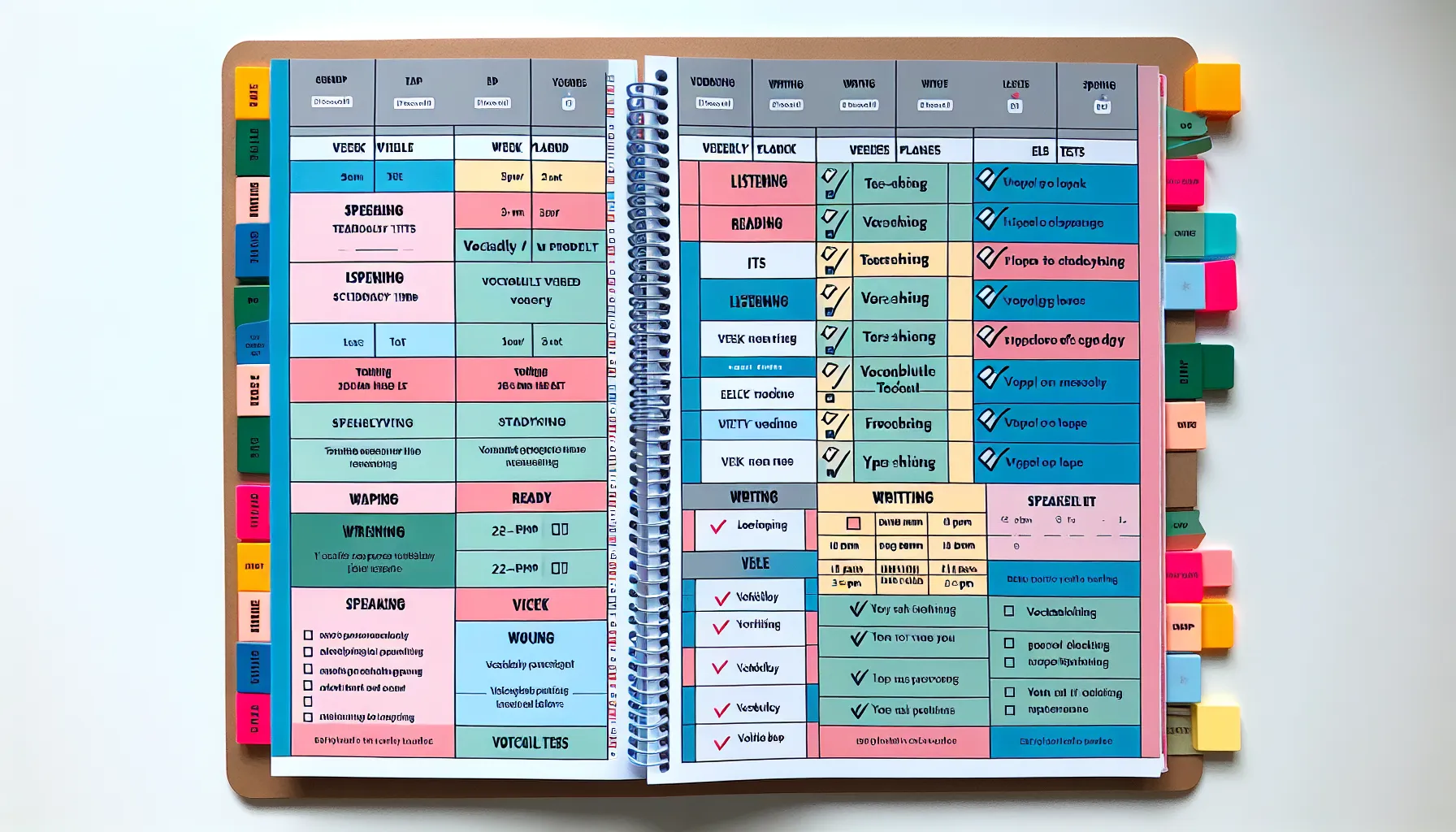Understanding the IELTS Exam
The International English Language Testing System (IELTS) is a globally recognized English proficiency test. To excel in this exam, it’s crucial to adopt effective study methods tailored to its unique format and requirements. Let’s explore some of the best strategies to help you prepare for IELTS success.
Developing a Comprehensive Study Plan
Set Clear Goals
Begin your IELTS journey by setting specific, measurable goals. Determine your target band score and the areas you need to improve. This clarity will help you focus your efforts and track your progress effectively.
Create a Realistic Schedule
Develop a study schedule that fits your daily routine. Allocate dedicated time for each IELTS section (Listening, Reading, Writing, and Speaking) and stick to it consistently. Remember, regular practice is key to improvement.

Effective Strategies for Each IELTS Section
Listening
- Practice with diverse accents: Expose yourself to various English accents through podcasts, news broadcasts, and IELTS-specific listening materials.
- Improve note-taking skills: Develop efficient note-taking techniques to capture key information quickly.
- Familiarize yourself with question types: Understand the different question formats used in the IELTS listening test.
Reading
- Enhance reading speed: Practice timed reading exercises to improve your speed without compromising comprehension.
- Develop skimming and scanning techniques: Learn to quickly identify main ideas and locate specific information in texts.
- Expand your vocabulary: Focus on academic and topic-specific vocabulary commonly used in IELTS passages.
Writing
- Master essay structures: Learn and practice different essay types, focusing on Task 1 (data interpretation) and Task 2 (argumentative essay) formats.
- Improve coherence and cohesion: Use linking words and phrases to connect ideas smoothly.
- Time management: Practice writing under timed conditions to ensure you can complete both tasks within the allotted time.
Speaking
- Regular practice: Engage in daily English conversations or self-talk to improve fluency and confidence.
- Record and analyze: Record your speaking practice sessions and analyze them for areas of improvement.
- Expand your topic knowledge: Stay informed about current affairs and common IELTS speaking topics to enhance your ability to discuss various subjects.
Utilizing Effective Study Resources
Official IELTS Materials
Invest in official IELTS preparation books and practice tests. These resources provide authentic exam-like questions and valuable insights into the test format and scoring criteria.
Online Platforms and Apps
Leverage technology with IELTS-specific apps and online platforms. These tools often offer interactive exercises, progress tracking, and personalized feedback to enhance your study experience.
Language Exchange Partners
Find language exchange partners or join IELTS study groups. Practicing with others can improve your speaking skills and provide motivation and support throughout your preparation.
Implementing Advanced Study Techniques
Spaced Repetition
Use spaced repetition techniques to review vocabulary and key concepts. This method involves revisiting information at increasing intervals to enhance long-term retention.
Active Recall
Implement active recall strategies by testing yourself regularly. Create flashcards, summarize passages from memory, or explain concepts to others to reinforce your learning.
Mind Mapping
Create mind maps to visualize complex topics and connect ideas. This technique is particularly useful for organizing thoughts in preparation for writing and speaking tasks.
Maintaining Motivation and Overcoming Challenges
Track Your Progress
Regularly assess your progress using practice tests and self-evaluation. Celebrate small victories and identify areas that need more attention.
Stay Healthy and Balanced
Maintain a healthy lifestyle with proper nutrition, exercise, and sufficient sleep. A well-rested mind is crucial for effective learning and exam performance.
Seek Support When Needed
Don’t hesitate to seek help from IELTS tutors or join online forums for advice. Sometimes, a fresh perspective can help overcome learning plateaus.
Final Steps Before the Exam
Full-Length Practice Tests
In the weeks leading up to your exam, take full-length practice tests under timed conditions. This will help you build stamina and familiarize yourself with the exam environment.
Review and Refine
Analyze your performance in practice tests and focus on refining your weakest areas. Pay special attention to time management and question-answering strategies.
Relaxation Techniques
Learn and practice relaxation techniques to manage exam-day stress. Deep breathing exercises and positive visualization can help calm nerves and improve focus during the test.
By implementing these study methods and maintaining consistency in your preparation, you’ll be well-equipped to achieve your desired IELTS score. Remember, success in IELTS is not just about English proficiency but also about strategic preparation and exam techniques. Stay focused, stay motivated, and best of luck with your IELTS journey!